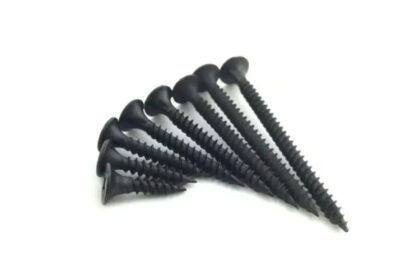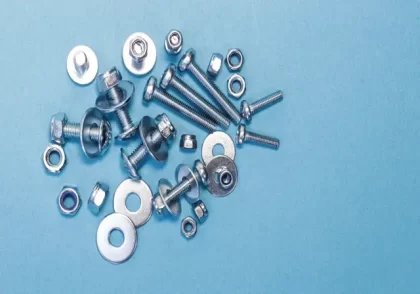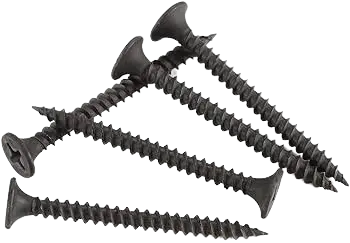Exploring Different Types of Fasteners Used in Day-to-Day Life
A Simple Guide to Different Types of Fasteners Used in Our Daily Life
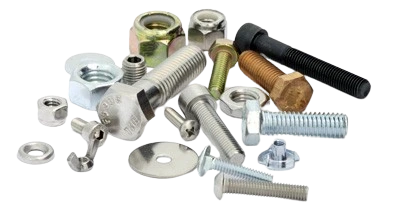
Fasteners are crucial devices that securely join objects together in our daily lives. From screws in furniture to bolts in cars, they're everywhere. In this blog, we'll explore their diverse types and uses. Despite their seemingly simple nature, fasteners are essential for stability and functionality in various applications. They quietly ensure everything stays in place, serving as invisible bonds. By understanding fasteners better, we can make informed choices in selecting the right one for different tasks. Join us as we explore the fascinating world of fasteners, uncovering their significance in shaping our everyday experiences.
Types of Fasteners
Fasteners come in a variety of shapes and sizes, each designed for specific applications. Let's explore some common types of fasteners and their uses in more detail:
Screws
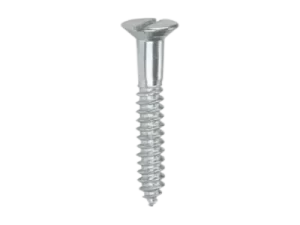
Screws are perhaps the most widely recognized fasteners. They feature a helical ridge, known as a thread, that allows them to grip into materials firmly. Screws are versatile and can be used for a wide range of applications, from assembling furniture to securing electrical components. Different types of screws include wood screws, machine screws, and self-tapping screws, each tailored to specific materials and requirements.
Bolts
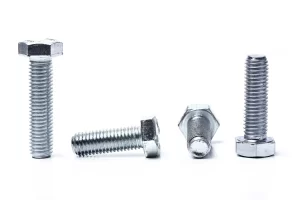
Bolts are similar to screws but are typically used to hold together non-threaded objects or to create a removable joint. Bolts require a nut to secure the joint, providing a stronger and more secure fastening than screws in certain applications. They are commonly used in machinery, automotive assembly, and construction.
Nuts
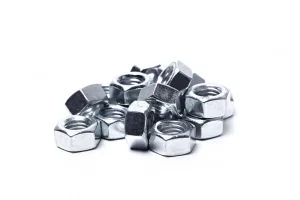
Nuts are essential components used in conjunction with bolts to fasten multiple parts together. They come in various shapes and sizes, including hexagonal, square, and wing nuts, each offering specific advantages depending on the application. Nuts work by mating with the threads of a bolt, creating a strong and secure connection through friction, bolt stretching, and part compression.
Washers
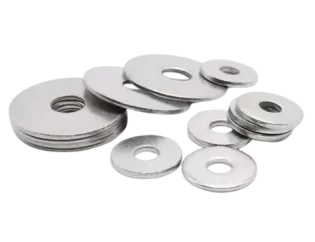
Washers are small, flat discs with a hole in the center used to distribute the load of a screw or nut evenly over a surface. They help prevent damage to the material being fastened and provide a smooth surface for the nut or bolt to bear on. Washers come in various types, including flat washers, split washers, and locking washers, each serving a specific purpose in fastening applications.
Rivets
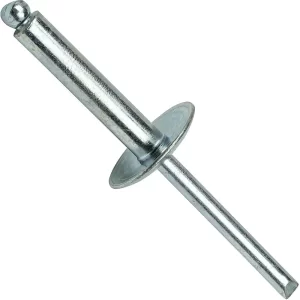
Rivets are permanent fasteners used to connect two pieces of material in a permanent way. They are commonly used in industries such as aerospace, automotive, and construction, where a strong and reliable joint is required. Rivets are installed by inserting them into pre-drilled holes and deforming the end to create a head, effectively locking the pieces together.
Anchors
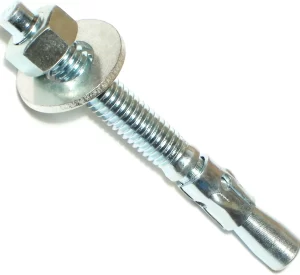
Anchors are fasteners used in construction to secure objects to concrete, masonry, or other solid materials. They provide a strong and stable connection, particularly in heavy-duty applications such as securing shelving units, handrails, or wall mounts for televisions. Anchors come in various types, including sleeve anchors, wedge anchors, and expansion anchors, each designed for specific load capacities and installation methods.
Studs
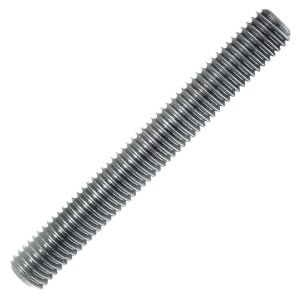
Studs are vital fasteners in construction and carpentry, serving as threaded metal rods or bars. Used to anchor bolts or screws securely, they provide stability in framing walls and attaching structural components. Essential for creating robust structures, studs come in various sizes and materials, ensuring reliable fastening in diverse construction projects.
Beyond the Usual
The world of fasteners extends far beyond these common examples. Explore the possibilities with:
Cable ties: Keep wires and cables organized and secure.
Snap hooks: Provide quick attachment points for bags and keychains.
Safety pins: Offer temporary closures and emergency repairs.
Rubber bands: Offer flexibility and temporary hold for light tasks.
Zip ties: Offer high tensile strength for heavy-duty applications.
Quick links: Create temporary or permanent connections in chains and ropes.
Choosing the Right Fastener
Selecting the appropriate fastener depends on several key factors:
Material: What are you connecting (wood, metal, fabric)?
Strength: How much weight or pressure needs to be held?
Permanence: Is the connection temporary or permanent?
Aesthetics: Does the fastener need to be visible or hidden?
Ease of use: How easy is it to install and remove the fastener?
Conclusion
In conclusion, fasteners are the often-overlooked yet essential components that hold our world together. From the common screws and bolts to the lesser-known cable ties and snap hooks, they come in various forms to suit diverse needs. Understanding the characteristics and applications of different fasteners is crucial for ensuring stability, functionality, and safety in various tasks and projects. By exploring the wide array of fasteners available and considering factors such as material, strength, permanence, aesthetics, and ease of use, we can make informed decisions and select the right fastener for any given application. So, next time you encounter a loose screw or need to secure an object, remember the importance of fasteners in shaping our day-to-day experiences and the role they play in maintaining order and functionality in our lives.
For more information on this blog or to learn more about fasteners, feel free to contact us. Termscript Fasteners, as leading fasteners manufacturers in Pune, our dedicated team is ready to guide you.
